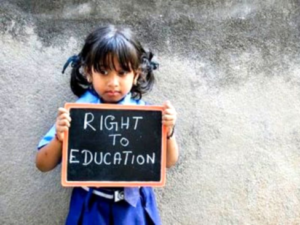RTE admissions | RTE admissions 2023-2024 | RTE 2023-24 | RTE (Right to Education) | RTE (Right to Education)Admission |
RTE Admissions
Every child has a fundamental right to education, and it has a significant impact on how they will develop in the future. But due to a variety of socioeconomic issues, many children in India find it difficult to access a high-quality education. In an attempt to bridge this gap, the Right to Education (RTE) Act was introduced in 2009 by the Government of India. RTE requires free and compulsory education for children in the age group of six to fourteen years. This blog article will go into the RTE admission process for the academic year 2023-2024 and examine its importance in ensuring that all children have access to quality education.
Understanding RTE
As per the Right to Education (RTE) Act, all students should have proper access to education. According to this law, private schools must set aside a certain number of seats for children from disadvantaged and economically disadvantaged areas. By banning discrimination based on social, economic, or cultural considerations, RTE encourages inclusiveness. It envisions a world in which every child has equal opportunity to pursue higher education and realize their full potential.

AIM Establishes 50 College Scholarship at Anjuman Islam,Mumbai
RTE Admissions for 2023-24
To ensure that deserving students have access to high quality education, the RTE admission process is necessary for the academic year 2023-2024. Generally, private schools distribute the application form to start the admission process. To encourage greater reach and accessibility, these forms have been made available both online and offline. Parents or guardians of eligible children may submit the application form and supporting paperwork within the deadline.
After the application process is over, a lottery system is used to select students for admission. Every child has an equal chance of getting a place as the lottery system promotes fairness and transparency in the selection process. Once the selected students are notified, the admission process begins, which includes document verification and completion of formalities.
Importance of RTE Admissions
RTE admissions are important to ensure equal opportunities for children from disadvantaged communities. RTE gives these children a way to enroll in private schools that they may not be able to afford otherwise, while reserving seats for economically disadvantaged areas. This action is necessary to end the cycle of poverty, by empowering marginalized populations through education.
Additionally to encourage social cohesion and diversity within educational institutions, RTE Admissions. Schools become inclusive environments that encourage knowledge, empathetic feelings and acceptance of students when they accept youth from a wide variety of backgrounds. It promotes the development of a more peaceful and inclusive society.
Challenges and the Way Forward
RTE has made significant progress in access to education, yet there are still barriers to its efficient application. Difficulties include ignorance of RTE rules by eligible households, lack of schools, and inadequate infrastructure in some places. These issues have been made worse by the COVID-19 pandemic, which has disrupted school systems and increased educational disparities.
To overcome these issues, it is necessary to improve the RTE awareness programs and streamline the admission process. By building more schools and increasing infrastructure in disadvantaged areas, the government should aim to increase the geographical reach of RTE. It is equally important to invest in teacher training and professional development to ensure that high quality education is provided.
Expanding RTE Reach
Expanding the scope of RTE to include a larger age range and addressing the needs of children below 14 years of age is essential to ensure that it fulfills its full potential. For children in the age group of 6 to 14 years, RTE is now a requirement for free and compulsory education. However, this age limit needs to be expanded to include adolescents and youth who may not have completed their primary school.
RTE can give a second chance by increasing the age limit to those people who have been denied education due to various reasons. This may include children who left school early, moved, or had other difficulties that made it difficult for them to attend school. By implementing adult education programs within the RTE framework, you can bridge the achievement gap and guarantee that quality education is accessible to all.
Improving Infrastructure and Resources
Lack of proper resources and infrastructure in many schools, especially in rural and underprivileged areas, is one of the major hurdles in successfully implementing RTE. In order to establish conditions that are safe and conducive to learning, it is necessary to invest in building and renovating school infrastructure. It also includes other essential facilities like library, lab and classrooms.
In addition, it is important to guarantee the availability of skilled teachers and provide them with ongoing support and training. Teachers with the necessary skills and drive to engage students and meet their unique needs are essential to high-quality education. To address the shortage of qualified teachers, teacher training programs should be improved, and trainers can be encouraged to work in under-served areas.
Collaboration with Stakeholders
Successful implementation of RTE requires collaboration among multiple stakeholders including government organizations, educational institutions, non-profit organizations and local communities. It is essential to involve these stakeholders in decision making and develop a participatory strategy.
Schools should play an active role in the RTE admission process to ensure that the reserved seats are distributed as per rules. To ensure compliance and address any potential problems, regular monitoring and evaluation should be carried out. To spread the word about RTE and help eligible families, NGOs and community organizations can be incredibly helpful.
Conclusion
For the academic year 2023-2024, the RTE admission process will be of utmost importance to ensure that all children have access to quality education. RTE can indeed achieve its objective of providing equitable and high quality education to every child in India by expanding its reach, enhancing facilities and resources and encouraging collaboration among stakeholders.
Achieving universal access to education is a process that never ends and requires continuous efforts. The government, civil society and people should work together to address these issues and develop an inclusive education system that enables every child to realize his or her full potential. The future of our country is better when we invest in education.































